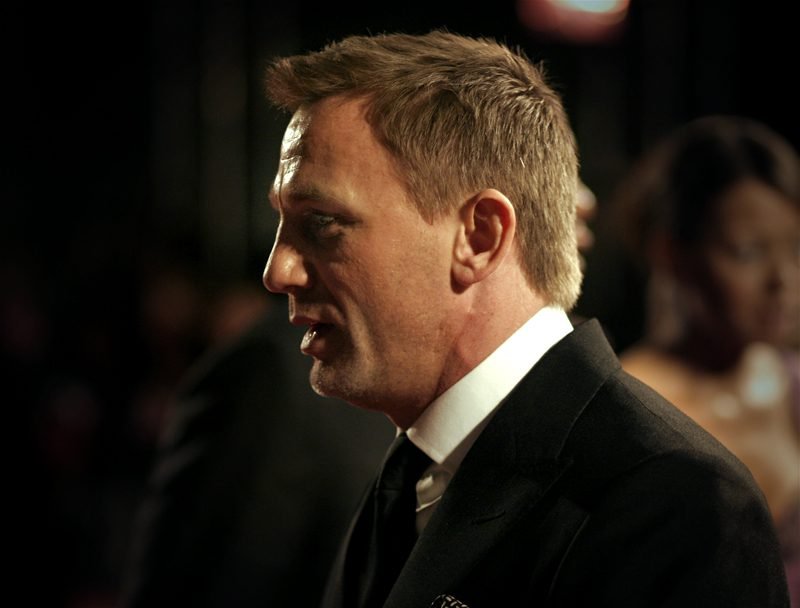Daniel Craig, known for his portrayal of James Bond, opens up about his reservations regarding the iconic role and the impact it had on his life. Having played the famous spy for 15 years across five films, Craig holds the record as the longest-reigning actor to take on the character. His decision to take on the role wasn’t as straightforward as it might seem.
In a recent conversation with The New Yorker, Craig shared his initial doubts and concerns about accepting the part of 007, which came with an immense amount of pressure and expectations. One of the actor’s main concerns was the character’s alignment with a certain traditional notion of masculinity.
Reflecting on the pressures of playing the spy legend, Craig said his “biggest reservations” had to do with “the construct of masculinity.” He allowed that the Bond character, in early films in particular, frequently perpetuated outdated male stereotypes, giving him second thoughts. “It was often very laughable,” Craig said, admitting that, at times, Bond’s depiction of his masculinity could come across as virtually absurd. But he also recognized that to make the character stick, these elements had to be fully embraced, no matter how ridiculous they sounded. “You can’t mock it and expect it to work,” Craig said. “You have to buy into it.”

For Craig, the role of Bond was never just about stepping into a tuxedo and wielding a gun. It was a complex decision, one that involved grappling with the deeper implications of the character’s influence on society and the values it represented. The actor revealed that as he reflected on the role more deeply, he had to navigate his own understanding of what it meant to embody the “hyper-masculine” character that Bond represented.
Yet, despite all these reservations, Craig decided to accept the role and redefine the character in his own image. Throughout his tenure as Bond, he helped shift the narrative of the character, particularly by giving him more emotional depth and vulnerability than his predecessors. Craig’s Bond was a man who could be bruised, both physically and emotionally—a departure from the often stoic and invincible portrayals that dominated the series in years prior.
In a career-defining move, Craig made sure to add layers to Bond that resonated with contemporary audiences, making him less of a one-dimensional action hero and more of a fully realized individual. His Bond wasn’t just a suave and unflappable secret agent; he was a man haunted by his past, dealing with loss and grappling with the implications of his violent profession.
Craig himself says that the character has made him a very different person from the one that had been playing the role all those years. Embodying James Bond for a period of more than ten years is sure to change his life in both personal and professional areas. He mentioned in the interview, while speaking about this character, that it was so much a transformation journey rather than the career that was going with time. The deep emotional and physical toll of the role changed him in ways he did not foresee upon signing up. Bond of Craig was more than merely action-packed stunts in the series; it was the psychological and emotional exploration of the character, marking his life forever.
Since stepping down after the release of No Time to Die, Craig has found time to reflect on the legacy he has created through his interpretation of Bond. Indeed, the change in perspective over the years can be observed from the remarks about the role: from being unsure of his tenure, Craig now appears to be proud of the contribution made to the 007 franchise, which broke away from more conventional portrayals of the character.
For Craig, playing Bond was an opportunity to explore deeper themes, challenge perceptions, and add a sense of realism to the character. Instead of simply being an agent of coolness and invincibility, his Bond was grounded in emotion and vulnerability. Craig’s portrayal became more than just action-packed spy thrills; it was a nuanced exploration of identity, masculinity, and the human condition.
Though his reservations were significant at first, Craig has come to terms with the role and its impact on both his career and the broader cultural landscape. He may have started out as a reluctant 007, but by the end of his tenure, Craig had left a profound imprint on the franchise. The character of Bond, once synonymous with stoic strength and unflappable charm, was reshaped into a more modern and emotionally complex figure thanks in large part to Craig’s bold and thoughtful portrayal.
It’s obvious, by many aspects, that the Bond portrayed by Daniel Craig has been one of the significant milestones in the development of the character. The transformation from hesitant to devoted reveals the seriousness with which he took his assignment. He may not have been too sure at the very beginning, but Craig grasped the opportunity to redefine James Bond as the most accessible and human version of him in the history of films.








